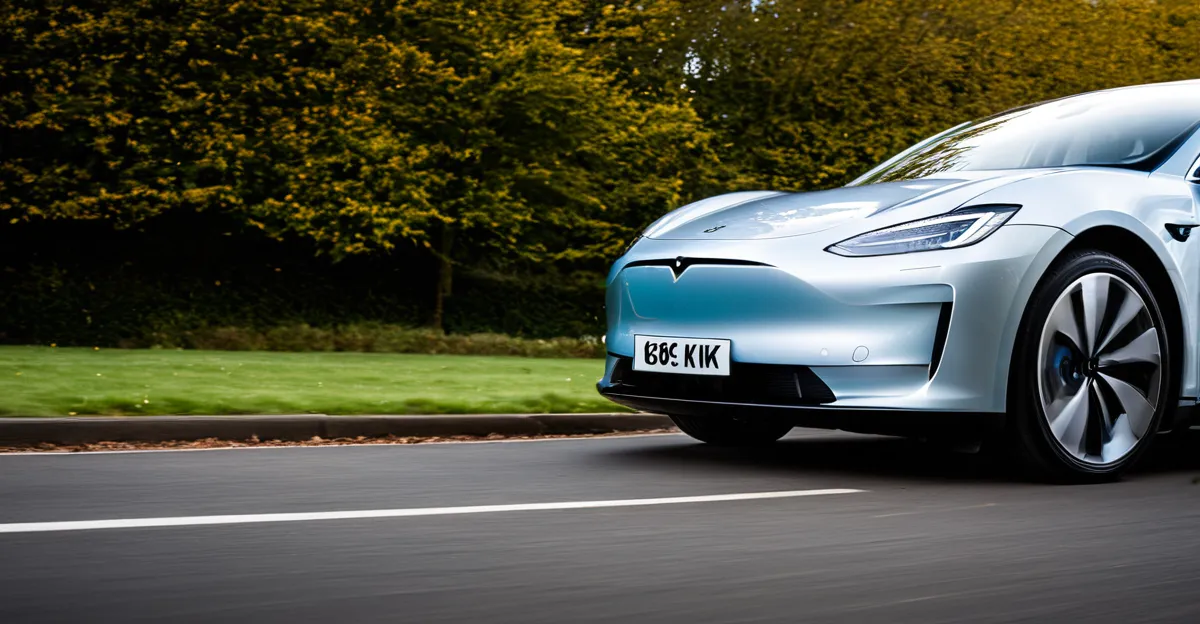Electric cars’ potential impact on the UK automotive industry
Electric vehicles UK are driving a significant industry transformation within the nation’s automotive sector. The current adoption rates, though growing steadily, already indicate a shift from traditional combustion engine vehicles towards sustainable mobility solutions. This transition is reshaping production methods, supply chains, and workforce skills across the UK automotive industry impact landscape.
Immediate disruptions have emerged as legacy manufacturing practices face pressure to adapt to electric vehicle UK technology. The shift demands new expertise in battery assembly, electric drivetrain manufacturing, and software integration, moving away from the conventional internal combustion engine focus. These disruptions also extend to dealership and service networks, which must evolve to support electric vehicles UK maintenance and customer needs.
This might interest you : How is the UK automotive industry tackling the issue of vehicle emissions?
Emerging competitive dynamics among manufacturers are intensifying as traditional automakers and new entrants compete aggressively. Established UK brands increasingly invest in electric vehicle UK platforms, while newcomers leverage innovation to capture market share. This rivalry stimulates rapid development cycles and drives down costs, accelerating consumer adoption and fueling further industry transformation.
Understanding these forces is essential for stakeholders navigating the evolving UK automotive industry impact, as electric vehicles UK reshape market structures and future growth trajectories.
Also to discover : Future Innovations: How Will Self-Driving Cars Transform Our City Infrastructure?
Key technological advancements fueling the shift
Technological progress in EV technology advancements is central to the ongoing industry transformation in electric vehicles UK. A primary driver of this shift is battery innovation. Improvements in energy density, cost reduction, and charging speed have significantly extended vehicle range, making electric vehicles UK more practical and appealing to consumers. For instance, advances in lithium-ion battery chemistry and the introduction of solid-state batteries are enabling ranges exceeding 300 miles per charge, reducing range anxiety that once hindered wider adoption.
Charging solutions are also evolving rapidly. Deployment of ultra-fast charging stations across the UK is addressing previous limitations in charging access, supporting longer trips and everyday convenience. Smart infrastructure integrates with the national grid to balance load demands efficiently, allowing electric vehicles UK to interface with renewable energy sources. This synergy lowers carbon footprints and underscores the automotive industry impact beyond manufacturing.
Vehicle connectivity plays a pivotal role as well. Modern electric vehicles UK increasingly feature advanced telematics and integration with mobile apps that allow remote monitoring and control, maintenance alerts, and software updates over-the-air. Furthermore, integration with the UK energy grid means electric vehicles can potentially act as energy storage units, feeding electricity back into the grid during peak demand. This bidirectional energy exchange exemplifies the convergence of automotive and energy sectors, accelerating the industry transformation.
Together, these technological advancements support a robust ecosystem enabling electric vehicles UK to compete strongly with traditional vehicles. They also lay a technical foundation for long-term scalability and consumer acceptance, which will be essential for the UK automotive industry impact in coming years.
Government policies and regulatory landscape
Government policies in the UK are pivotal in accelerating the industry transformation of electric vehicles UK. Key among these is the upcoming 2030 petrol and diesel vehicle ban, which prohibits the sale of new petrol and diesel cars from that year. This mandate sends a definitive signal to manufacturers and consumers, encouraging a shift toward electric vehicles UK and prompting the automotive industry impact towards zero-emission technologies.
To complement this, the UK government has introduced a range of incentives aimed at boosting electric vehicle UK adoption. These include grants to reduce upfront costs for buyers, support for installing home and public charging points, and tax benefits that lower the total cost of ownership. Such measures address financial barriers and stimulate demand, helping to accelerate the industry transformation. For example, discounts on vehicle purchase prices reduce the initial investment hurdle, making electric vehicles UK more accessible to a broader demographic.
On the regulatory front, the government is establishing green automotive regulations to ensure that the environmental benefits of electric vehicles UK are maximized. These regulations encompass stricter emissions standards, efficiency requirements, and support for renewable energy integration within the vehicle charging infrastructure. Collectively, these policies not only encourage manufacturers to innovate and invest in cleaner technologies but also align the automotive industry impact with national climate goals.
Moreover, there is targeted policy support directed at manufacturers, aimed at fostering domestic production capabilities for electric vehicles UK. Initiatives include funding for research and development, subsidies for battery manufacturing, and frameworks to attract investment in UK automotive technology hubs. This proactive approach is designed to nurture a sustainable supply chain and maintain competitive edge as the industry transformation unfolds.
In summary, the interplay of the 2030 ban, government incentives, and regulatory frameworks is reshaping the electric vehicles UK landscape. These policies facilitate consumer adoption, drive industrial innovation, and underpin the wider automotive industry impact toward a zero-emission future.









